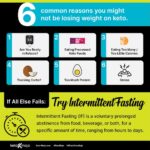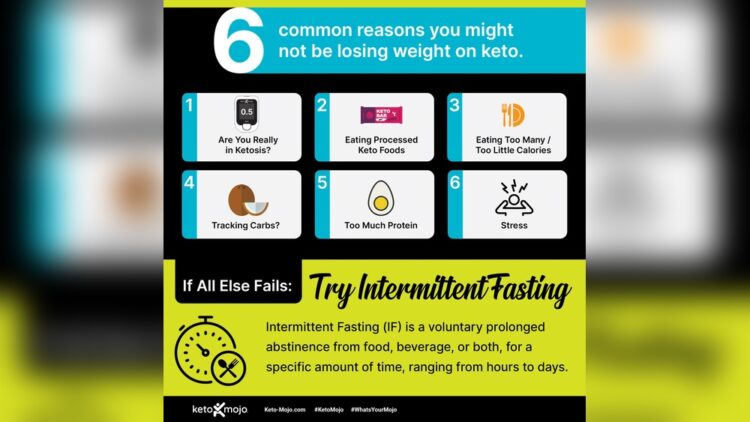Losing weight without experiencing diarrhea can be achieved by following a balanced diet and regular exercise routine. By adopting healthy eating habits and engaging in physical activity, you can effectively shed pounds without suffering from digestive issues.
Achieving weight loss goals is a common aspiration for many individuals; however, the experience of diarrhea can negatively impact one’s journey. Diarrhea can be caused by various factors such as excessive calorie restriction, food intolerances, or inadequate nutrient absorption. To ensure a weight loss journey that is not hindered by digestive disruptions, it is essential to adopt a sensible approach that focuses on a balanced diet and regular exercise.
This article will explore practical tips and strategies for losing weight without the uncomfortable and disruptive effects of diarrhea. By implementing these recommendations, individuals can achieve their desired weight goals while maintaining a healthy and well-functioning digestive system.
Understanding Weight Loss And Its Link To Your Gut Health
If you’re trying to lose weight, it’s important to understand the link between weight loss and your gut health. Your gut, or gastrointestinal tract, plays a crucial role in digestion and nutrient absorption. As research advances, evidence suggests that the health of your gut can impact your ability to shed those extra pounds. So, let’s dive deeper into the connection between weight loss and gut health.
The Connection Between Weight Loss And Gut Health
- Your gut is home to trillions of bacteria, known as gut microbiota, which influence various aspects of your health. These bacteria help break down food, extract nutrients, and produce substances that impact your metabolism.
- Studies have shown that individuals with a diverse and balanced gut microbiome tend to have a healthier body weight compared to those with an imbalanced or less diverse gut microbiome.
- Imbalances in gut bacteria have been associated with conditions such as obesity, insulin resistance, and inflammation, which can hinder weight loss efforts.
- Furthermore, the gut microbiota can affect the production of hormones related to hunger and satiety, potentially influencing appetite and food cravings.
Why You Should Prioritize Gut Health During Weight Loss
When embarking on a weight loss journey, it’s crucial to prioritize your gut health. Here’s why:
- A healthy gut can optimize digestion and absorption of nutrients, ensuring you obtain the necessary vitamins, minerals, and energy from the foods you consume.
- By promoting a diverse and balanced gut microbiome, you can enhance your metabolism and increase the efficiency of calorie burning. This can potentially accelerate weight loss.
- An imbalanced gut can lead to inflammation and insulin resistance, which can make it harder to shed excess pounds. Prioritizing gut health can help alleviate these issues.
- Improving your gut health can positively impact your overall well-being, including better mood, increased energy levels, and reduced risk of certain diseases.
Overall, understanding the link between weight loss and gut health is crucial for achieving long-term success. By prioritizing gut health and adopting habits that support a healthy gut, you can enhance your weight loss efforts and improve your overall health and well-being.
Follow A Balanced And Nutritious Diet
Weight loss is a common goal for many individuals. However, it is important to lose weight in a healthy and sustainable manner. One of the key factors in achieving this is to follow a balanced and nutritious diet. By fueling your body with the right foods, you can promote weight loss without experiencing the discomfort of diarrhea. In this article, we’ll explore some effective strategies for creating a well-rounded and nourishing eating plan.
Choosing Whole And Unprocessed Foods
When it comes to weight loss, opting for whole and unprocessed foods is crucial. These foods are rich in essential nutrients, including vitamins, minerals, and antioxidants. They are also high in dietary fiber, which aids in digestion and keeps you feeling full for longer periods of time. Some examples of whole foods include:
- Fresh fruits and vegetables
- Whole grains like quinoa and brown rice
- Nuts and seeds
- Legumes like lentils and chickpeas
Including Fiber-rich Foods In Your Diet
Fiber plays an important role in weight loss and digestive health. It helps regulate blood sugar levels, promotes satiety, and aids in the elimination of waste from the body. By including fiber-rich foods in your diet, you can support weight loss without experiencing diarrhea. Here are some excellent sources of fiber:
| Fruits and Vegetables | Whole Grains | Legumes | Nuts and Seeds |
|---|---|---|---|
| Berries | Oats | Chickpeas | Almonds |
| Broccoli | Quinoa | Lentils | Chia Seeds |
| Spinach | Brown Rice | Black Beans | Flaxseeds |
| Carrots | Whole Wheat Bread | Split Peas | Walnuts |
Opting For Lean Proteins
Protein is an essential macronutrient that plays a vital role in weight loss. It helps build and repair tissues, supports muscle growth, and keeps you feeling satisfied. When choosing protein sources, it is important to opt for lean options to maintain a healthy weight. Here are some examples of lean proteins:
- Skinless chicken or turkey breast
- Fish like salmon, tuna, or cod
- Egg whites
- Tofu or tempeh
Avoiding Excessive Sugar And Refined Carbs
Sugar and refined carbohydrates can hinder weight loss and contribute to digestive issues like diarrhea. Consuming excessive amounts of these substances can cause blood sugar spikes, cravings, and energy crashes. To promote healthy weight loss, it is important to limit your intake of sugar and refined carbs. Instead, focus on consuming complex carbohydrates like whole grains, fruits, and vegetables.
Incorporate Regular Exercise Into Your Routine
When it comes to weight loss without experiencing diarrhea, incorporating regular exercise into your routine is essential. Not only does exercise help burn calories and aid in weight management, but it also offers a plethora of other health benefits. In this section, we will explore the importance of physical activity for weight loss, choosing activities that you enjoy, finding time for exercise in your daily schedule, and combining cardio and strength training for optimal results.
The Importance Of Physical Activity For Weight Loss
Regular physical activity plays a vital role in achieving and maintaining weight loss. By engaging in exercise, your body burns calories, which can help create a calorie deficit necessary for shedding unwanted pounds. Physical activity also boosts your metabolism, helping you to burn more calories even when at rest. In addition to weight loss, exercise enhances overall health and well-being, reduces the risk of chronic diseases, and improves mood and mental health.
Choosing Activities That You Enjoy
One of the keys to sticking with an exercise routine is choosing activities that you genuinely enjoy. Whether it’s dancing, swimming, hiking, or playing a sport, finding activities that are fun and enjoyable makes it easier to stay motivated and consistent. Experiment with different exercises to discover what excites you and keeps you engaged. Remember, physical activity should be engaging and enjoyable, not just another chore on your to-do list.
Finding Time For Exercise In Your Daily Schedule
Many people struggle to find time for exercise in their busy schedules, but with a little planning and prioritization, it’s possible to make it a regular part of your routine. Assess your daily schedule and identify pockets of time that you can allocate to physical activity. This could be waking up 30 minutes earlier, taking a lunchtime walk, or dedicating a specific time slot in the evening. Consistency is key, so aim for at least 150 minutes of moderate-intensity aerobic activity or 75 minutes of vigorous-intensity aerobic activity every week.
Combining Cardio And Strength Training For Optimal Results
To maximize weight loss and overall fitness, it’s important to combine both cardio and strength training exercises in your workout routine. Cardiovascular exercises like running, cycling, or aerobics help burn calories and improve cardiovascular health. Strength training exercises, on the other hand, build lean muscle mass, which increases your metabolism and enhances weight loss efforts. Strive for a balance between cardio and strength training activities to achieve optimal results.
Prioritize Hydration And Proper Digestion
When it comes to weight loss, many of us often overlook the importance of proper digestion and hydration. However, these two factors play a crucial role in not only our overall health but also in achieving sustainable weight loss goals. By prioritizing hydration and promoting good digestion, we can optimize our body’s natural processes and pave the way for successful weight loss without the unpleasant side effects like diarrhea.
Drinking Enough Water Throughout The Day
Water is the elixir of life. It not only keeps us hydrated but also aids in digestion, nutrient absorption, and waste elimination. When it comes to weight loss, sipping on water throughout the day can do wonders. Aim to consume at least eight glasses of water each day. To enhance the taste, add a squeeze of lemon or infuse water with fresh fruits and herbs. By staying adequately hydrated, you can support your body’s metabolic function and reduce the risk of digestive issues like diarrhea.
The Role Of Water In Weight Loss And Gut Health
Water plays a crucial role in weight loss and maintaining a healthy gut. It helps to flush out toxins, regulate body temperature, and support proper digestion. When you are dehydrated, your body may compensate by slowing down your metabolism, leading to weight gain. Additionally, drinking water before meals can help you feel full and prevent overeating. So, make sure to make water your go-to beverage throughout the day for optimal gut health and weight loss.
Practicing Mindful Eating Habits
Mindful eating is a practice that involves paying attention to the present moment, savoring each bite, and being in tune with your body’s hunger and fullness cues. By taking the time to enjoy your meals and eating slowly, you can enhance digestion, reduce the risk of digestive discomfort, and prevent overeating. Remember to chew your food thoroughly and avoid distractions like watching TV or using electronics while eating. Practicing mindful eating habits can contribute to healthy digestion and weight loss without the unwanted side effects like diarrhea.
Managing Stress To Promote Healthy Digestion
Stress can wreak havoc on our digestive system, leading to symptoms like bloating, indigestion, and diarrhea. To promote healthy digestion and avoid these issues, it’s essential to manage stress effectively. Engage in stress-reducing activities like yoga, meditation, or deep breathing exercises. Make time for self-care and prioritize activities that bring you joy and relaxation. By keeping stress levels in check, you can support your gut health and ensure efficient digestion, facilitating weight loss without experiencing diarrhea.
Seek Professional Guidance And Support
Get professional guidance and support for weight loss without experiencing diarrhea. Seek expert advice to ensure a safe and effective approach to reaching your weight loss goals.
Consulting With A Registered Dietitian Or Nutritionist
When it comes to achieving sustainable weight loss without experiencing discomfort such as diarrhea, seeking professional guidance from a registered dietitian or nutritionist is crucial. These experts have the knowledge and expertise to provide you with an individualized eating plan that takes into account your specific needs, preferences, and goals. Through personalized consultations, they can assess your current dietary habits, identify potential triggers for diarrhea, and recommend dietary modifications that promote weight loss while ensuring your digestive health remains optimal.
Understanding The Importance Of Individualized Advice
One of the key benefits of consulting with a registered dietitian or nutritionist is receiving personalized advice that caters to your unique circumstances. While general weight loss guidelines may exist, every individual has different body compositions, metabolisms, and health concerns that should be taken into account. By understanding the importance of individualized advice, you can ensure that your weight loss journey is tailored to fit your needs. This personalized approach reduces the risk of experiencing diarrhea, as your dietitian or nutritionist will develop a plan that is sensitive to your digestive system and identifies specific trigger foods that may induce discomfort.
Joining Support Groups Or Weight Loss Programs
In addition to seeking professional guidance, joining support groups or weight loss programs can offer you the support and encouragement needed to achieve your weight loss goals without experiencing diarrhea. These groups provide a sense of community where you can share your experiences, learn from others, and gain valuable insights into effective weight loss strategies. Surrounding yourself with like-minded individuals who are also committed to losing weight can foster motivation and accountability, ultimately increasing your chances of success. Moreover, these groups often have leaders or facilitators who are knowledgeable about nutrition and can provide guidance on maintaining a healthy diet while avoiding diarrhea-causing foods.
Tracking Your Progress And Results
Lastly, tracking your progress and results is essential when striving for weight loss without the unpleasant side effect of diarrhea. By keeping a food diary or using a mobile app, you can monitor your daily food intake, exercise routines, and any associated symptoms. This tracking allows you to identify patterns between certain foods and the occurrence of diarrhea, enabling you to make necessary adjustments to your diet. Additionally, it provides a visual representation of your progress, which can be a source of motivation and help you stay on track. In conclusion, seeking professional guidance and support is crucial for achieving weight loss without experiencing diarrhea. Consulting with a registered dietitian or nutritionist provides individualized advice, ensuring your dietary plan is designed with your specific needs in mind. Joining support groups or weight loss programs offers a sense of community and access to knowledgeable leaders who can provide guidance. Finally, tracking your progress and results allows you to make informed dietary adjustments and constantly monitor your journey towards reaching your weight loss goals. By incorporating these strategies, you can navigate your weight loss journey successfully while maintaining digestive health.
Frequently Asked Questions Of Weight Loss Without Diarrhea
Can Weight Loss Cause Diarrhea?
Weight loss itself does not cause diarrhea, but certain weight loss methods or dietary changes can trigger digestive issues like diarrhea.
How Can I Prevent Diarrhea While Losing Weight?
To prevent diarrhea while losing weight, focus on a balanced diet, stay hydrated, avoid excessive fiber intake, and introduce dietary changes gradually.
What Should I Do If I Experience Diarrhea During Weight Loss?
If you experience diarrhea during weight loss, it’s important to stay hydrated, avoid spicy and greasy foods, and consult a healthcare professional if symptoms persist or worsen.
Conclusion
Achieving weight loss goals without experiencing diarrhea is possible by following a balanced and nutritious diet, incorporating regular exercise, staying hydrated, managing stress levels, and seeking professional guidance when needed. By adopting these healthy habits, you can embark on a safe and sustainable weight loss journey, enhancing your overall well-being.
Remember, promoting a healthy lifestyle goes hand in hand with preserving one’s health and happiness.










Leave a Reply